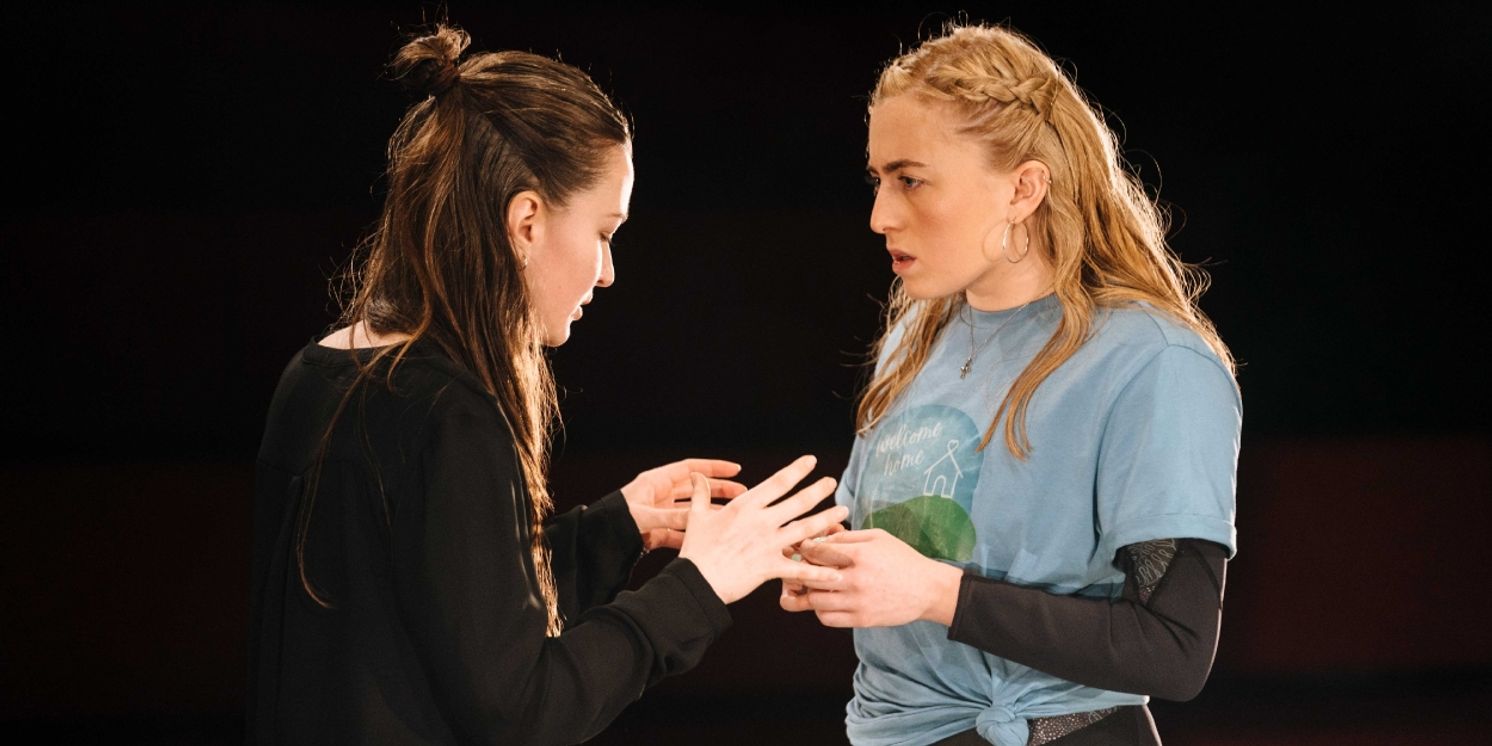Review: AKEDAH, Hampstead Theatre
The Bruntwood-winning play opens in Hampstead

![]() I went into Akedah expecting a play about a play about a cult-like Christian community, since this is how it's described on the website. While there is an element of that, the real focus of the show is on trauma and abuse. The result is a very bleak, emotionally fraught production that's difficult to unpick.
I went into Akedah expecting a play about a play about a cult-like Christian community, since this is how it's described on the website. While there is an element of that, the real focus of the show is on trauma and abuse. The result is a very bleak, emotionally fraught production that's difficult to unpick.
Akedah won the 2019 Bruntwood Prize Original New Voices Award, and is Michael John O'Neill's first full length play. It's a tricky show in every sense of the word: the themes are very heavy, with little levity, and the plot is often hard to keep track of, as new details about the characters' past are gradually added.
As the play begins, Gill (Amy Molloy) is returning home to Northern Ireland for the first time in three years. There, she meets her younger sister Kelly (Ruby Campbell), who is now a member of a devout Christian community. The whole play takes place in one room in the community, and is, for the most part, one long conversation between the two women. Their shared history looms large, as cycles of abuse begin to repeat themselves and their conflict both past and present threatens to become physical.
There's a lot of interesting material here. The show's title stems from the biblical story of Abraham's near sacrifice of his son Isaac, which seems rife for dramatic interpretation. A soft toy of a lamb is used as a metaphor, but the concept feels underutilised in the story as a whole. The overarching themes of male violence and control, in a show where only women are onstage, are also intriguing, but remain frustratingly secondary.
Perhaps the greatest problem with Akedah is its overwhelming misery. The show is gruelling from start to finish, and limiting the majority of the play to a dialogue between the same two characters in the same one room means the tension and pacing that could have been there are lost. There's no feeling of fun here: the few comedic lines offer only a very brief respite, and there's little lighting, music, or movement to add some dynamism. The ending is clever, and features some good work from director Lucy Morrison, but doesn't leave us with any real feelings of hope or satisfaction.
In fact, Molloy as Gill spends almost the entire production crying or on the verge of tears: it's an impressive feat from her, but serves to highlight the issues with the writing. The standout performance comes from Campbell, who brings a youthful honesty to the stronger parts of the dialogue and commits to every aspect of her character. A slight issue with the casting is that Kelly and Gill are supposed to be 18 and 33, but the actresses come across as much closer in age than this, altering their intended sisterly dynamic. Mairead McKinley as Sarah has comparatively little stage time, but brings some nice subtlety to her role.
Morrison as director, alongside set designer Naomi Dawson, and lighting and sound designers Kevin Murphy and Beth Duke, do endeavour to add some creative staging to this naturally confined script. The traverse configuration was a strong choice, and a translucent curtain is used very effectively to create an eerie atmosphere at the beginning and end of the play. Echoing voices and phone notifications build out the intensity of Gill's inner world through sound. It feels as though there could have been more innovation however, especially as many of the creatives worked on exciting Royal Court productions like That Is Not Who I Am and Scenes with girls.
Akedah is a strange play, intense and subdued at the same time. The themes and concepts going on behind the scenes are fascinating, and writer Michael John O'Neill clearly has some smart ideas, but the play in its current form feels a little too joyless.
Akedah runs at Hampstead Theatre until 18 March
Photo Credit: Helen Murray
Reader Reviews

Videos

